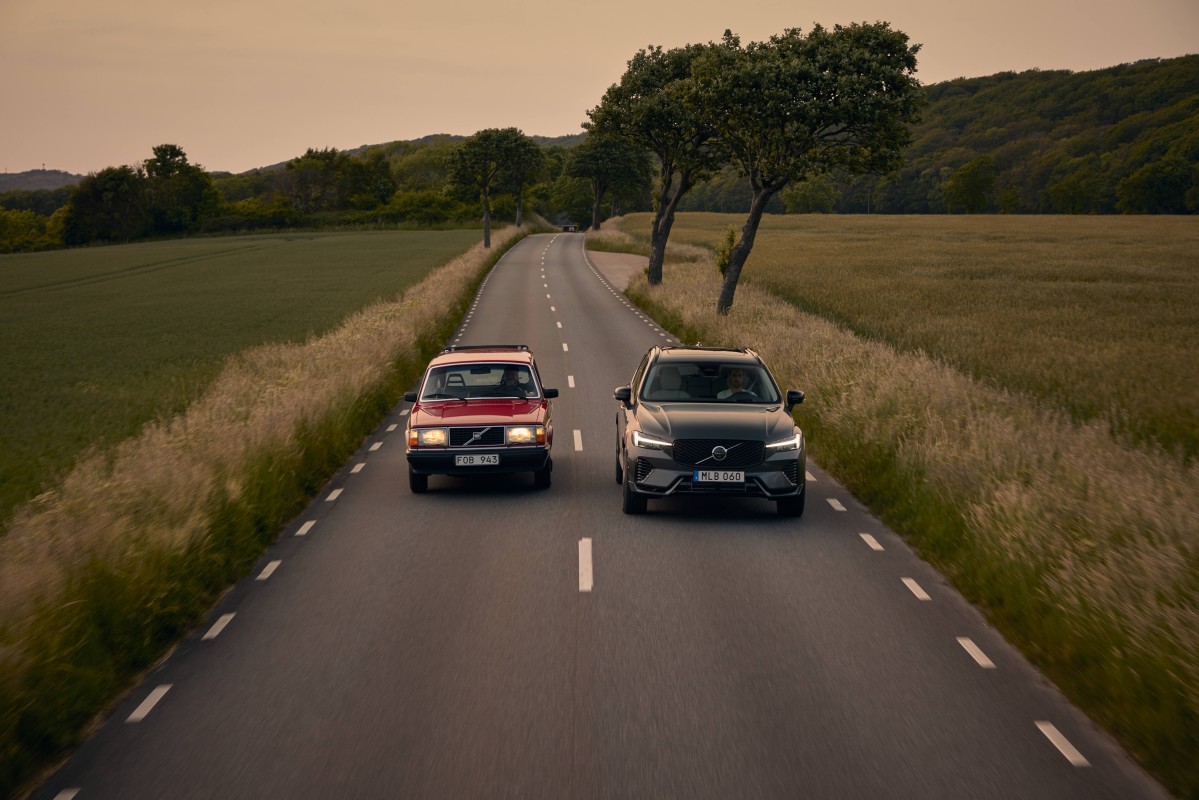Another victim of tariffs
According to reports by both Reuters and Automotive News, Swedish automaker Volvo is making some drastic cuts to its lineup to turn a profit as President Donald Trump’s tariffs make it harder to sell a broad range of vehicles in the U.S.
Previously, Volvo offered a range of sedans and station wagons alongside a selection of crossover SUVs; however, the Geely-owned automaker said that it will fully phase out these cars from its U.S. offerings due to declining consumer demand and complications from import tariffs.
According to a Volvo spokesperson who spoke to AutoNews, Volvo will cease offering the Chinese-assembled S90 and the Swedish and Belgian-assembled V60 wagons in the U.S. starting in the 2026 model year. This leaves the V60 Cross Country as the only non-SUV in Volvo’s U.S. lineup.
Volvo will ramp up U.S. production of popular SUVs
This decision comes as the U.S. has levied tariffs of 27.5% on European-made cars and 100% on EVs imported from China, forcing automakers to review their product strategies. In light of this, Volvo Cars CEO Håkan Samuelsson said in remarks on CNBC’s Europe Early Edition on July 17 that the company would “definitely not” pull out of the U.S. market, where it has been present for 70 years, adding that it will bring the XC60 into production in the U.S.
“What we are doing is, first of all, we want to fill our factory that we have in South Carolina. It should be the strategic asset it was intended to be. So, we have to utilize it more,” Samuelsson said. “Second, of course, now with the tariffs, it is very natural to bring in a [car model with] big-selling volume. We are bringing in the XC60 SUV,” he added.
Following a July 16 announcement, Samuelsson said during Volvo Cars’ Q2 2025 earnings call on July 17 that U.S. production of the XC60 will ramp up in early 2027. Despite currently being tasked with EX90 and Polestar 3 production, Volvo’s South Carolina assembly plant only made about 20,000 vehicles last year—just 13% of its capacity. The XC60 “will bring high volumes to the factory [and] together with the increase in the EX90, will give that factory much better utilization,” Samuelsson said. Volvo CFO Fredrik Hansson added that the cost of localizing XC60 production is in the “very low single-digit billion [U.S. Dollars].” as it previously built the S60 sedan, which is mechanically similar to the XC60.
“The plant is already adapted for that production,” Hansson said. “That means we can find very cost-efficient ways to [build the XC60].”
Volvo
Volvo CEO urges EU to drop tariffs against the US
Following the announcement of a 10 billion Swedish kronor ($1 billion) Q2 2025 operating loss, Volvo Cars CEO Hakan Samuelsson said that the European Union should reduce its tariffs on U.S. car imports while politicians in Brussels work toward a trade agreement with the Trump administration.
“If Europe is for free trade, we should be the ones showing the way and going down to very low tariffs first,” Samuelsson told Reuters, adding that European automakers do not need protection from U.S. competitors. “I think it’s absolutely unnecessary, the European car industry definitely does not need to have any protection from American auto builders.”
In a series of letters written to the leaders of other countries and key trading partners, President Donald Trump has threatened to raise tariffs on imported goods from the EU to 30% on Aug. 1. Previously, the U.S. had a 2.5% tariff on EU-built cars, while the EU had a 10% tariff on imported vehicles from the U.S. However, Samuelsson recognizes that he has limited say as a businessperson and can only limit his company’s exposure to it. “These are the measures we have control over, rather than when it comes to tariffs, we can only have an opinion like everybody else,” he said.

Final thoughts
In remarks to Reuters, Bill Wallace, the owner of the Wallace Automotive Group, which owns Volvo retail locations in Florida, told the newswire that in the luxury segment that Volvo competes for buyers in, shoppers are quick to pick other brands if pricing becomes an issue.
“At the end of the day, even with a luxury model, they are going to compare their payment with a BMW, Lexus, or a similar model … and if it’s a little bit higher … you’re just gonna lose the business,” he said.
Wallace does have a point. Although Volvo has a reputation for building and selling fairly attractive and solid mild hybrid and plug-in hybrid luxury SUVs, it is doing so in a crowded market. To make matters worse, Mercedes and BMW’s answers to the XC90 are both made in the United States. As I said before, Volvo CEO Samuelsson may be determined to increase American production of its high-volume models while the U.S. engages in challenging trade discussions with nearly every nation, but any decisions about the company’s future must be carefully calculated if it wants to continue selling in the U.S. from here on out.